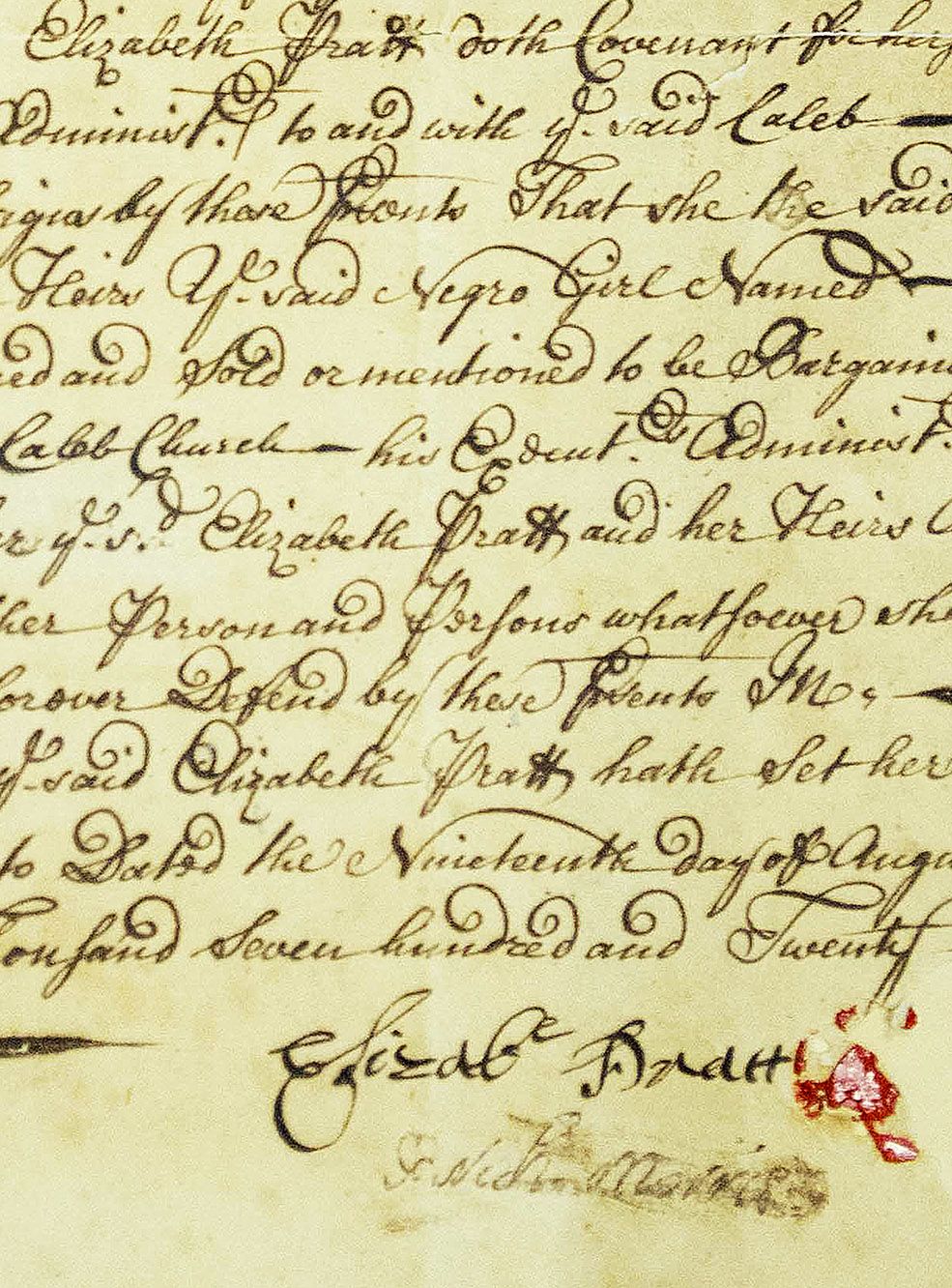Only recently are we beginning to recognize the crucial role played by women like the widow Elizabeth Woodberry Pratt in colonial trade. The extensive cache of records brought to light by Christina J. Hodge affords us a fascinating glimpse into the experience of one such woman entrepreneur. Born in 1671 in Beverly, Massachusetts, Elizabeth married Joseph Pratt, a saddler from Bristol, Rhode Island, around 1700. Although we do not know exactly when Joseph died, records show that Elizabeth moved to Newport by 1710 and purchased Wood Lot on Spring Street in 1723. She lived there for a time with her daughter Mary, and her enslaved servant Dinah, who did much of the cooking, cleaning, and sewing. It is likely that at times her home served as a storehouse and shop too, specializing in textiles, foods, and other household items. Elizabeth ran a successful business in Newport from about 1720 to 1740. Pratt and her sons-in-law battled in court for control of her shop of goods in the later 1730s. This struggle marks the precarity created by Pratt’s gender and the uncertainties of colonial retail.
Biography provided by Heidi Benedict, Roger Williams University
Image courtesy of Newport Historical Society

